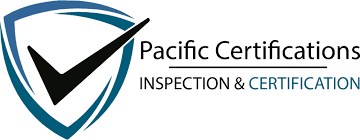ISO Certifications for Investment Banking and Brokerage Services, Requirements and Benefits

Introduction
Investment banking and brokerage services operate in a high-velocity, high-risk, and heavily regulated financial environment where transaction integrity, data confidentiality, risk governance, operational resilience, and regulatory compliance directly influence market confidence. These services cover capital raising, mergers and acquisitions advisory, securities trading, underwriting, asset distribution, research, and brokerage execution across equity, debt, and derivative markets.
With increasing regulatory scrutiny, real-time trading environments, growing cyber and data-leak risks, and rising expectations from institutional clients and regulators, investment banks and brokerage firms face constant pressure to demonstrate disciplined governance. ISO certifications have therefore become an essential framework for investment banking and brokerage services to formalize operational controls, protect sensitive market data, ensure continuity of critical services, and strengthen credibility with regulators, exchanges, counterparties, and investors.
In capital markets, confidence travels faster than capital.
Quick Summary
ISO certifications provide investment banking and brokerage services with internationally recognized frameworks to manage service quality through ISO 9001, information security through ISO/IEC 27001, privacy protection through ISO/IEC 27701, business continuity through ISO 22301, IT service reliability through ISO/IEC 20000-1, enterprise risk governance through ISO 31000, and occupational health and safety through ISO 45001. These certifications strengthen trading integrity, compliance readiness, and operational resilience.
For expert assistance in obtaining ISO certification for investment banking and brokerage services , contact [email protected].
Applicable ISO Standards for Investment Banking and Brokerage Services
Below are the most relevant ISO standards applicable to investment banks, securities brokers, dealer firms, and capital-markets intermediaries:
ISO 9001: Quality Management Systems
ISO 9001 supports consistency across investment banking and brokerage activities such as deal origination, mandate execution, trade processing, settlement, client reporting, and dispute resolution through documented procedures and continual improvement.
ISO/IEC 27001: Information Security Management Systems
Investment banks and brokers handle highly sensitive market data, client portfolios, transaction records, and pricing information. ISO/IEC 27001 provides a structured framework to manage cybersecurity risks and protect information integrity.
ISO/IEC 27701:2019 – Privacy Information Management Systems
ISO/IEC 27701 strengthens governance over personal and investor data processed during onboarding, KYC, transaction reporting, and regulatory disclosures, supporting compliance with data-protection laws.
ISO 31000: Risk Management
This standard provides guidelines on managing risk faced by organizations. In investment banking and securities brokerage, where risk management is a core function, ISO 31000 provides a structured and comprehensive approach to risk management.
ISO 22301: Business Continuity Management Systems
Capital-markets services must remain operational during system outages, cyber incidents, or market volatility. ISO 22301 ensures resilience of trading, settlement, and reporting functions.
ISO/IEC 20000-1:2018 – IT Service Management Systems
Electronic trading platforms, settlement systems, market data feeds, and client portals rely on stable IT services. ISO/IEC 20000-1 ensures controlled change management, incident response, and system availability.
ISO 55001: Asset Management
This standard is about the effective management of assets, both tangible and intangible. In securities brokerage and investment banking, where asset management is a key service, this standard can help in optimizing the lifecycle of assets.
Click here to find out more applicable standards to your industry
What are the Requirements of ISO Certifications for Investment Banking and Brokerage Services?
Investment banking and brokerage firms seeking ISO certification must establish and maintain documented policies, procedures, and records aligned with each applicable ISO standard. Key requirements include the following:
ISO 9001:2015 – Quality Management System
Define standardized procedures for advisory mandates, trade execution, and settlement
Establish quality objectives related to accuracy, timeliness, and regulatory compliance
Implement document and record control for mandates, trade confirmations, and reports
Monitor trade errors, settlement failures, and client complaints
Apply corrective actions and continual improvement across operations
ISO/IEC 27001:2022 – Information Security Management System
Identify and classify market, transaction, and client information assets
Conduct information security risk assessments and treatment planning
Implement access controls, encryption, and secure authentication
Establish incident detection, reporting, and response procedures
Monitor and review ISMS effectiveness
ISO/IEC 27701:2019 – Privacy Information Management System
Define roles as personal data controller and processor
Establish lawful basis for processing investor and employee data
Implement consent, retention, and data minimization controls
Manage data subject access, correction, and deletion requests
Maintain privacy risk assessments and breach response plans
ISO 22301:2019 – Business Continuity Management System
Identify critical trading, settlement, and advisory services
Conduct business impact analysis for market disruptions
Develop continuity and disaster recovery plans
Test continuity arrangements under simulated conditions
Train staff on incident response and service restoration
ISO/IEC 20000-1:2018 – IT Service Management System
Define service levels for trading and settlement platforms
Control system changes and technology upgrades
Manage incidents, outages, and service degradations
Monitor system availability, latency, and capacity
Drive continual improvement of IT services
Tip:Start by mapping one complete capital-markets lifecycle—from client onboarding and mandate acceptance to trade execution, settlement, reporting, and regulatory disclosure—against ISO requirements to identify governance and resilience gaps early.
For further information on how we can assist your investment banking or brokerage firm with ISO certifications, contact us at [email protected].
What are the Benefits of ISO Certifications for Investment Banking and Brokerage Services?
ISO certifications are suitable for investment banks, securities brokers, and dealer firms. Key benefits include:
More consistent and controlled trading and advisory execution, reducing errors.
Stronger protection of sensitive market and client data, limiting exposure.
Improved operational resilience during market disruptions, ensuring continuity.
Enhanced risk governance and compliance discipline, supporting regulators.
Higher confidence from exchanges, counterparties, and institutional clients, enabling participation.
Improved audit readiness and transparency, strengthening market credibility.
Global capital markets continue to grow in scale and complexity as cross-border investment, electronic trading, and alternative asset classes expand. Industry analysis indicates that global investment banking revenues are projected to exceed USD 400 billion annually by 2030, while securities trading volumes continue to rise across equities, fixed income, and derivatives.
At the same time, regulators are intensifying expectations around operational resilience, cybersecurity, and governance of market intermediaries. Recent studies have shown that investment banks and brokers operating under certified quality, information security, and continuity frameworks experience fewer settlement disruptions, faster recovery during system incidents, and stronger supervisory confidence. By 2030, ISO-aligned governance—particularly ISO 9001, ISO/IEC 27001, ISO/IEC 27701, and ISO 22301—is expected to be a baseline expectation for capital-markets institutions operating in regulated and cross-border environments.
How Pacific Certifications Can Help?
Pacific Certifications, accredited by ABIS, acts as an independent certification body for investment banking and brokerage services by conducting impartial audits against applicable ISO standards. Our role is to objectively assess whether documented management systems and market operations conform to international ISO requirements, based strictly on verifiable evidence and records.
We support investment banks and brokerage firms through:
Independent certification audits conducted in accordance with ISO/IEC 17021
Practical assessment of real trading, advisory, and data-handling controls
Clear audit reporting reflecting conformity status and certification decisions
Internationally recognized ISO certification upon successful compliance
Ongoing surveillance and recertification audits
Contact us
If you need support with ISO certification for your investment banking or brokerage operations, contact us at [email protected]or +91-8595603096.
Author: Ashish
Read more: Pacific Blogs

